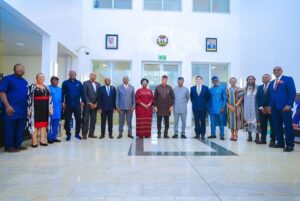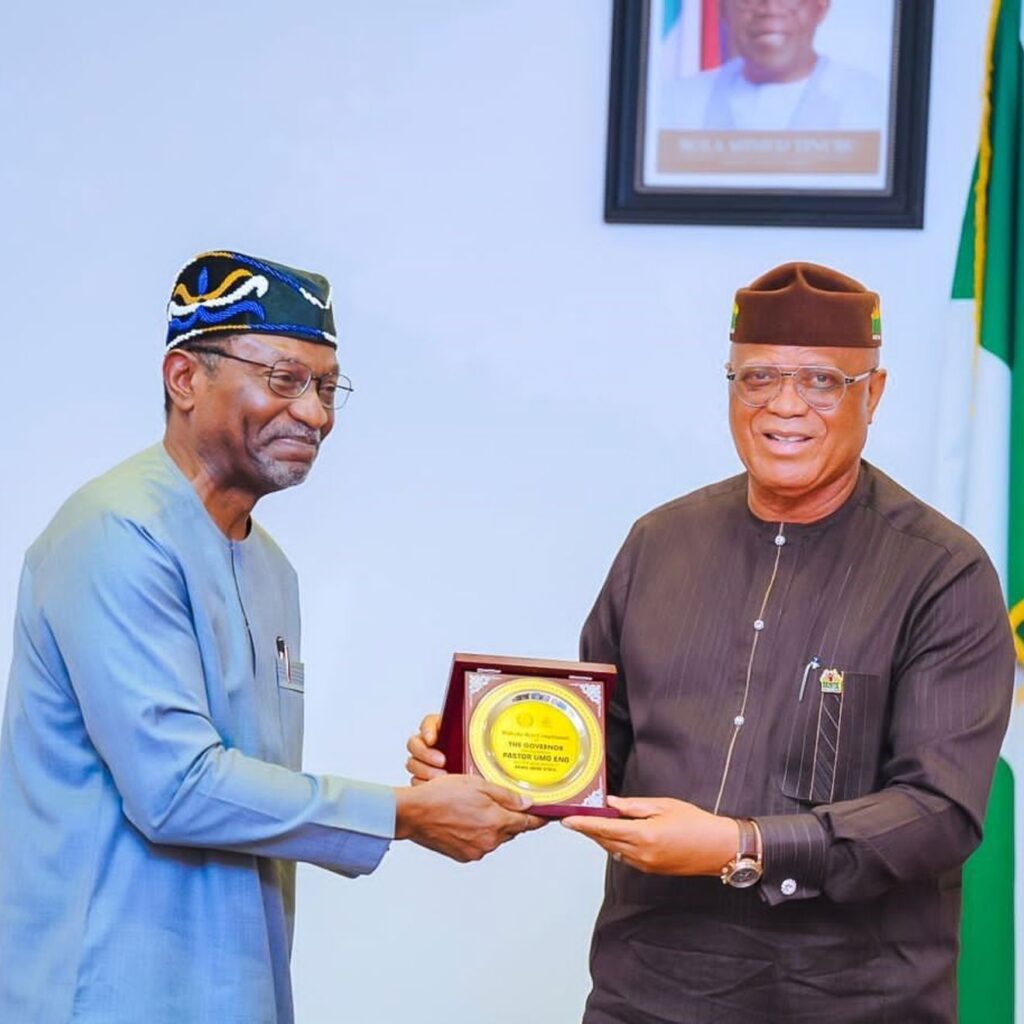
By Etim Etim
Seplat Energy Plc, an indigenous oil and gas producer, is settling down to business in Akwa Ibom State with its successful acquisition of the assets and liabilities of ExxonMobil Producing Nigeria Unlimited last year. It was one of the protracted corporate purchases in Nigeria’s oil industry lasting well over five years. ExxonMobil had operated in the state for over 50 years (It started as Mobil and in November 1999, merged with Exxon to form ExxonMobil) and had become an important part of Akwa Ibom community until it was bought last year for $1.3 billion by Seplat. To make its presence easily felt in the state, Seplat appointed an eminent Akwa Ibom son, Senator Udoma Udo Udoma as its Board chairman. Early this year, the chairman led the company on a visit to Governor Umo Eno. I congratulate Senator Udoma on his appointment and I welcome Seplat to Akwa Ibom the state. But I have a few words of advice to the company.

During the visit to the Government House, Senator Udoma told the governor that the company is willing to partner with the government for sustainable development and would ‘’support the socioeconomic development of Akwa Ibom State’’ and improve the wellbeing of the host communities. He said Exxonmobil was acquired by a subsidiary of Seplat known as Seplat Energy Offshore Limited, and clarified that the new entity will now be known as Seplat Energy Producing Nigeria Unlimited (SEPNU) and that all assets and liabilities of the previous company would be retained. Gov. Eno welcomed the company and promised cooperation of the government.
The specific roles and contributions of oil companies to the host communities are well spelt out in the Petroleum Industry Act and I am sure that SEPNU will do well to adhere to the provisions of this law and establish healthy relationships with its host communities in particular and Akwa Ibom State as a whole. But there are other items that I wish to bring to the notice of the company in terms of its relationship with Akwa Ibom State. First, ExxonMobil was a very responsible corporate citizen and through its conducts; it endeared itself to the people and the government. It had a lot of Akwa Ibom people in its senior management cadre. My good friend, Udom Inoyo, who is also well known to Senator Udoma, rose from a junior executive position hired in 1989 to the position of Executive Vice chairman from where he retired a few ago. There were many other Akwa Ibom sons and daughters in senior positions as geophysicists; engineers; lawyers; HR; finance; communications and IT specialists, etc.
Now, these people are retiring, and I want to advise that SEPNU should replace them with other Akwa Ibom people who are qualified to hold these positions. SEPNU should not make the mistake of replacing them with people from other places with the hackneyed excuse that ‘’there’s no qualified Akwa Ibom person for the job’’. I have heard such silly excuses from other companies, and I believe that with Senator Udoma as Chairman, Seplat will not insult our people with a similar justification. In fact, SEPNU may have to draw up an affirmative action to ensure the employment of our people in all cadres; with at least two Akwa Ibom people in executive positions. There are many qualified Akwa Ibom persons and they are capable of competing for any position in the company. Akwa Ibom people will resist every attempt at cleansing out our people who were hired, trained and groomed by ExxonMobil from SEPNU.
ExxonMobil had also built and maintained a large pool of competent contractors and service providers from Akwa Ibom State. I will imagine that SEPNU will continue to use them and add more to the list in future. In fact, it would be cost effective for SEPNU to encourage service providers to be located close to QIT instead of mobilizing them from Warri, Lagos or Port Harcourt to its shallow water platforms. In terms of educational intervention, SEPNU should also offer generous scholarships to Akwa Ibom students at various educational institutions. ExxonMobil was also very good at this. The technical training center built by ExxonMobil in Eket which served as a training facility for the technical staffs will have to be upgraded to a full-fledged engineering center. ExxonMobil had planned to establish an engineering center at the University of Uyo, but unfortunately, the plan was not fully realized before it exited the State. An engineering center is relevant for the Nigerian oil industry as a training facility for the core professionals in civil, mechanical, petroleum and alternative energy engineering. SEPNU may wish to go ahead and either upgrade the training center to an engineering centre or complete the one ExxonMobil was planning to build at UniUyo as well as continue with the trauma center it was planning for University of Uyo Teaching Hospital.
The location of ExxonMobil’s corporate headquarters in Lagos was a major concern to Akwa Ibom people and the state government. The company resisted pressures from successive governors to relocate to Akwa Ibom despite the incentives and conducive business environment the state offers. As a renowned corporate lawyer, Senator Udoma understands the intricacies of oil politics and he’s in a position to guide Seplat on the issue of headquarter location. Seplat will do well to respect the people; interests and cultures of our people and work to establish mutually beneficial relationships with the people and their government.
I have a word for the host communities and the state government. Undoubtedly, they have their respective roles in making a success of Seplat’s entry to the state. While the PIA authorizes oil companies to pay royalties directly to the host communities, it is the responsibility of the host communities to manage these funds efficiently, transparently and develop the communities. The monies are not to be shared among community leaders.
The state government is expected to deploy tax revenues and contributions from the oil company to create enabling environment for the growth of business. I recall that in 2011, ExxonMobil paid N8 billion to Akwa Ibom government when Godswill Akpabio was governor as its contribution to the repairs and expansion of Eket-Ibeno Road. But quite curiously, the Udom Emmanuel administration that succeeded Akpabio later denied that the money was paid. The denial created quite a furore and resulted in an unfortunate and needless controversy which embarrassed our people, including Akwa Ibom executives in the company. It was enough to discourage future CSR initiatives from the company. The government has a responsibility to manage its resources responsibly and transparently to earn the confidence of the citizens and investors.
I’m pleased at the appointment of Senator Udoma as the Chairman of Seplat. In 2021, I put him and 12 other persons on the cover of my book on the struggle for the abrogation of the onshore-offshore oil dichotomy. As a senator between 1999 and 2007, he fought hard to ensure the abrogation of the obnoxious dichotomy and with that, Akwa Ibom has been receiving billions every month in oil revenues. Senator Udoma is one of the most upright; decent and honest Nigerians. I’m sure that he will protect our interest.




GIPHY App Key not set. Please check settings